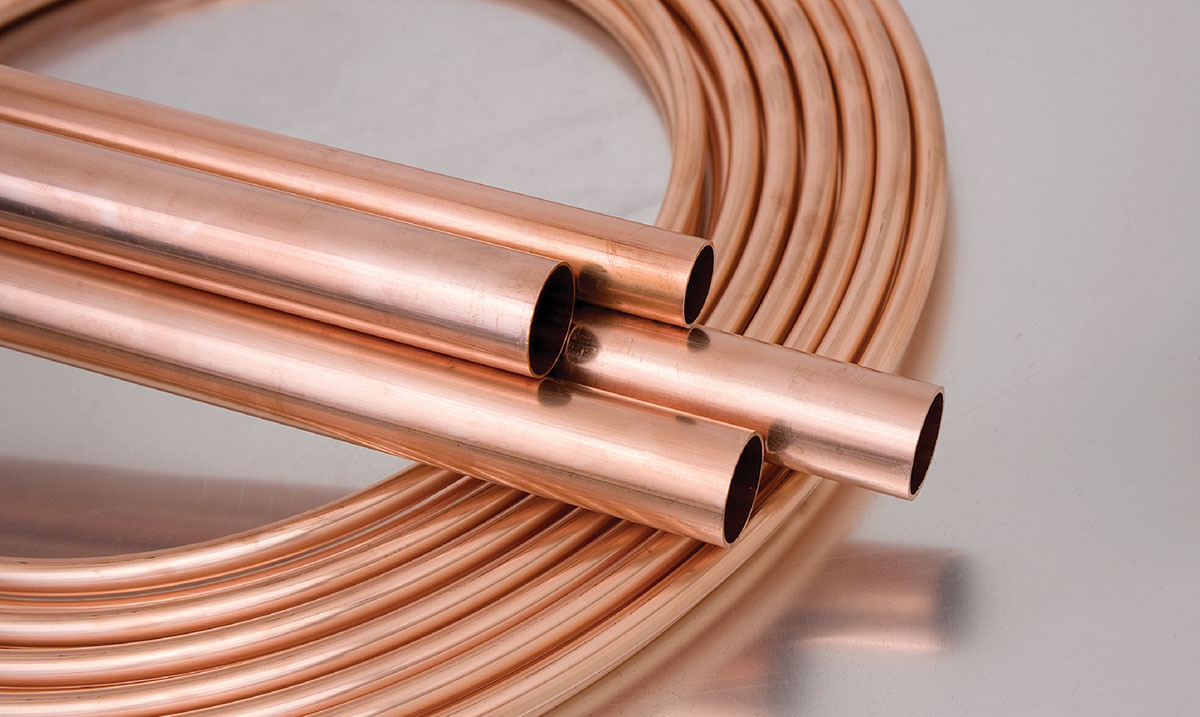Exploring the Diverse Applications of Copper Products in Modern Industries
From enhancing the effectiveness of electrical systems to playing an important duty in renewable power innovations, the flexibility of copper is apparent. As sectors increasingly focus on advancement and sustainability, the varied applications of copper require a closer exam, particularly concerning their possible influence on future ecological techniques and technical improvements.
Electric Applications of Copper
Copper is an essential product in the electric sector, representing roughly 60% of the total demand for non-ferrous steels globally - Copper Products. Its exceptional electric conductivity, which is virtually two times that of aluminum, makes it the favored selection for a large range of electric applications. From wiring systems in industrial and residential structures to high-voltage power transmission lines, copper makes certain effectiveness and integrity in power shipment
In addition to wiring, copper is important to the production of electric components such as electric motors, transformers, and generators. These elements leverage copper's thermal conductivity and malleability, crucial for warm dissipation and reliable efficiency. Copper's resistance to rust boosts the life-span and durability of electric systems, making it a cost-effective remedy in the lengthy term.
The development of sustainable energy resources, such as solar and wind power, has even more raised the demand for copper in electric applications. As markets shift towards sustainable power solutions, copper's duty ends up being a lot more critical. Overall, the versatility and efficiency features of copper solidify its status as a foundation material within the electrical field, driving technology and effectiveness throughout different applications.
Pipes and Piping Solutions
In contemporary pipes systems, the choice of materials significantly affects both capability and long life. Copper has become a favored choice due to its distinct homes, consisting of rust resistance and antimicrobial qualities. These characteristics ensure that copper piping remains safe and long lasting for carrying potable water, an important factor to consider in domestic and industrial applications.
Among the essential advantages of copper in plumbing is its capacity to stand up to heats and stress, making it ideal for a range of applications, from warm water systems to heating and cooling networks. Additionally, copper's adaptability enables for less complicated setup in intricate piping formats, decreasing the risk of failings and leaks.
One more noteworthy advantage is copper's long life-span, usually surpassing half a century with correct maintenance. This durability not just reduces substitute prices however additionally adds to sustainable techniques by minimizing waste. In addition, copper's recyclability aligns with modern-day ecological requirements, promoting a circular economy within the plumbing industry.
Copper in Renewable Power
The versatility of copper prolongs past pipes applications, playing an important role in the sustainable power industry. In solar panels, copper is used in photovoltaic cells and electrical wiring, promoting reliable power sites conversion and transmission.

In addition, as the global need for electric cars (EVs) boosts, copper's duty in battery systems and billing facilities comes to be a lot more considerable. The product's capability to carry out power effectively is important to the performance of EV batteries, enhancing array and charging speed.
Copper's Role in Electronics
Electronics making depends heavily on copper's remarkable residential properties, specifically its high electrical conductivity and thermal efficiency. These attributes make copper an optimal choice for a large range of electronic components, including connectors, circuit card, and wiring. The metal's capability to effectively transmit electrical signals ensures marginal power loss, which is crucial in high-performance electronic gadgets.
Furthermore, copper's thermal conductivity plays a considerable duty in heat dissipation, protecting sensitive elements from overheating. This is specifically essential in modern electronic devices, where portable layouts result in boosted warm generation. Copper is additionally favored for its pliability and ductility, permitting it to be conveniently formed into intricate styles that fulfill the needs of innovative digital applications.
With the rise of consumer electronic devices, telecoms, and electrical cars, the demand for copper in the electronic devices market proceeds to expand. Hence, copper remains a keystone product in the ever-expanding area of electronic devices.
Innovative Uses in Manufacturing

One remarkable application is in additive production, where copper-based materials are utilized in 3D printing procedures. This enables the development of lightweight parts and complex geometries, specifically in the aerospace and auto sectors. In addition, copper's thermal go to my blog conductivity makes it a suitable option for heat exchangers, improving effectiveness in industrial air conditioning systems.
Additionally, the surge of wise production has seen the consolidation of copper in IoT devices, where its conductive abilities sustain sophisticated noticing innovations. In the world of sustainable energy, copper is crucial in the manufacturing of photovoltaic panels and wind generators, assisting in extra effective energy conversion and circulation.
As sectors pursue sustainability and technology, copper's adaptability and efficiency remain to place it as an essential product, driving improvements in manufacturing and adding to the advancement of smarter, more effective products.
Final Thought
The indispensable duty of copper in eco-friendly energy and its essential function in electronic devices underscore its value in advancing lasting techniques. Jointly, these applications show copper's critical contribution to technical development and commercial performance in modern culture.
From enhancing the effectiveness of electrical systems to playing a vital role in eco-friendly energy technologies, the versatility of copper is apparent. As industries progressively focus on technology and sustainability, the diverse applications of copper require a closer examination, specifically concerning their prospective influence on future ecological methods and technological innovations.
The growth of renewable energy resources, such as solar and wind power, has further increased the demand for copper in electrical applications. Overall, the versatility and performance features of copper strengthen its condition as a cornerstone product within the electric sector, driving technology and performance throughout numerous applications.
The adaptability of copper expands beyond pipes applications, playing a crucial duty in the renewable energy industry.